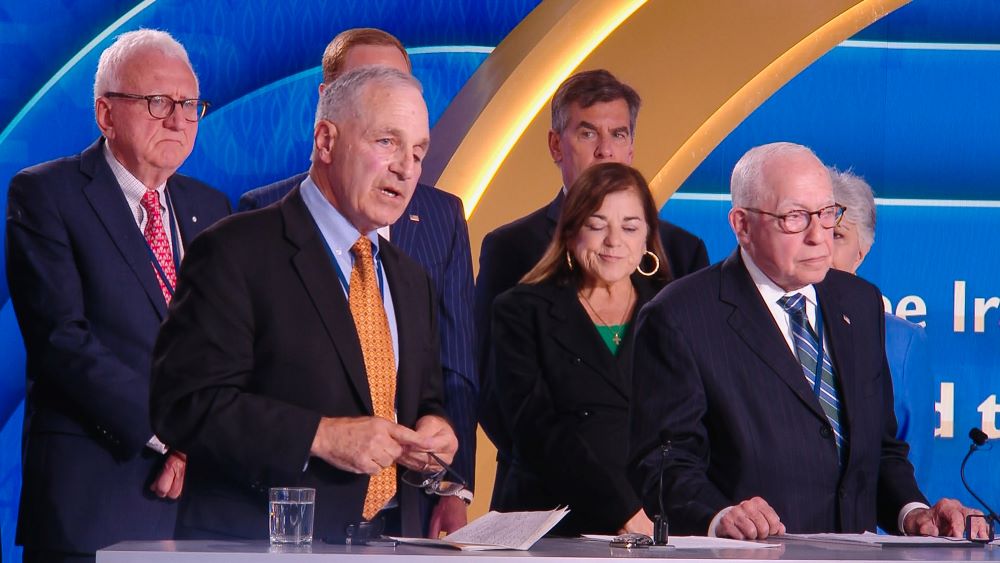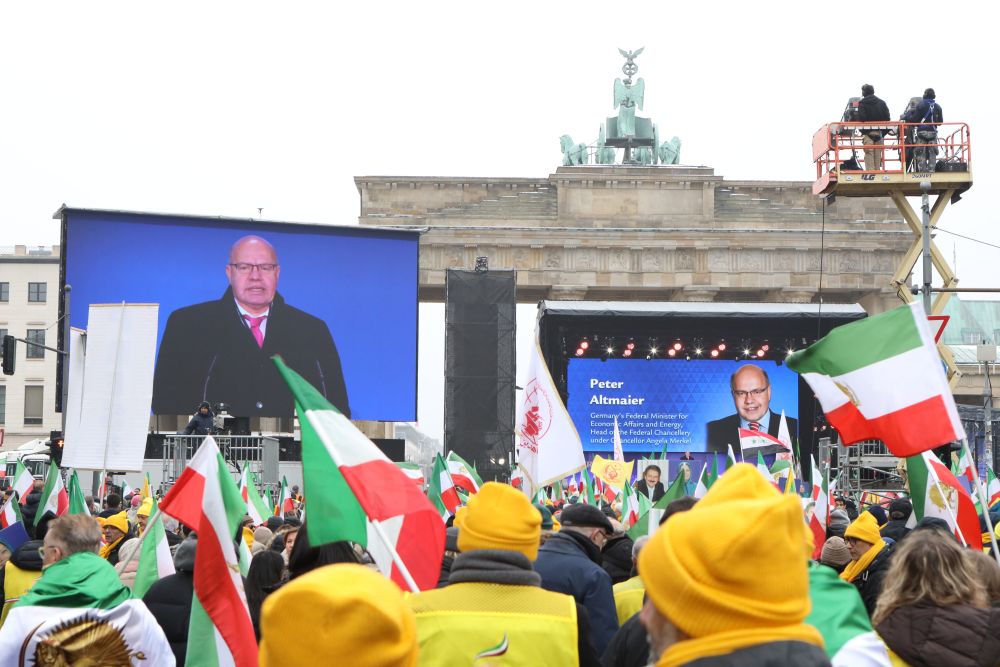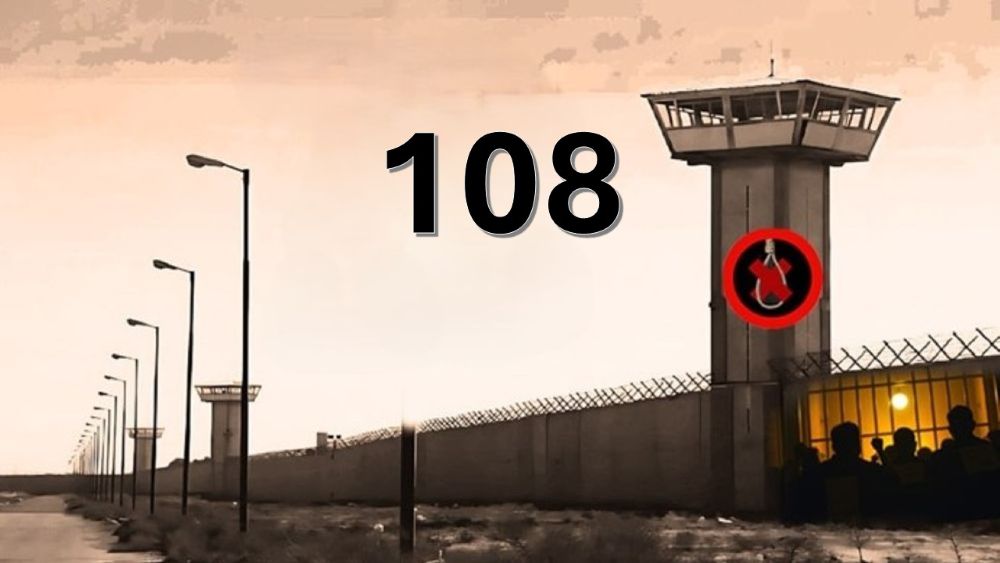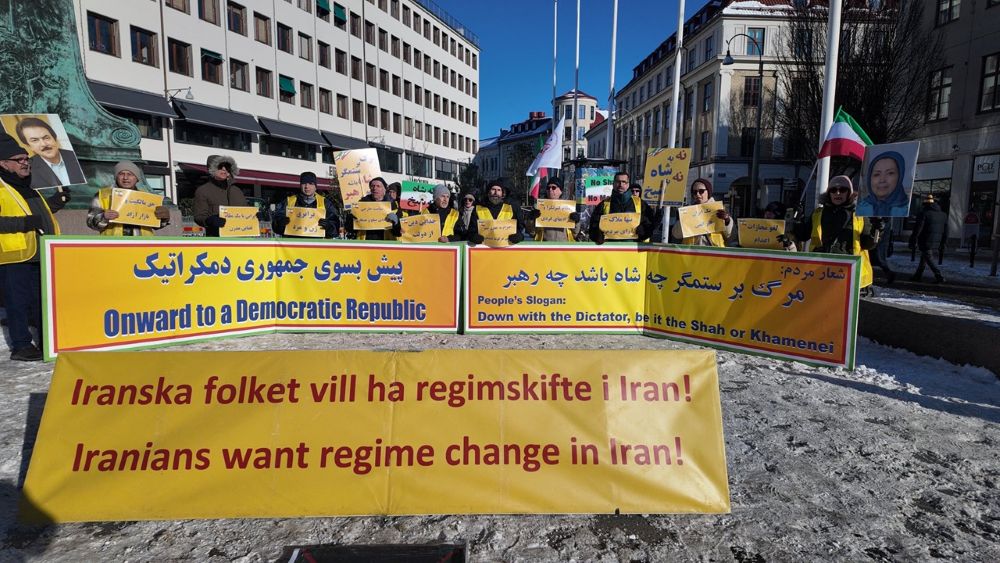
On June 29, 2024, at the Free Iran 2024 World Summit hosted at the National Council of Resistance of Iran (NCRI) headquarters in Paris, former FBI Director Louis Freeh, delivered a speech. Director Freeh highlighted the persistence and courage of Maryam Rajavi and the Iranian Resistance, expressing confidence that their efforts will soon bear fruit.
1. Former FBI Director Louis Freeh Calls for Accountability and Prosecution of Iranian Regime's War Crimes, Criticizes US Policy of Appeasement#MaryamRajavi4FreeIran #FreeIran2024 #BerlinDemo29Junehttps://t.co/JXBOHH7NWQ
— Iran Freedom (@4FreedominIran) June 29, 2024
The full text of former FBI Director Louis Freeh’s speech follows:
Thank you very much, and good evening, and good afternoon.
We want to start by sending our warm regards and our great support to the many, many people who are listening and watching this today, particularly in Iran, but also in Ashraf 3.
Mrs. Rajavi, pleasure always to be here with you. You have been an inspiration to us. You never, never, ever give up, and the results of that persistence, I think, will appear very, very soon.
So, I wanted to just talk very briefly and make two points, and I’m very honored to have my colleagues from America here. We sent a letter this year with about 30 signatures on it, everyone represented me here. Pleasure to be associated with them.
We would have had Joe Lieberman’s signature this year, and of course, we miss him very much, but he continues to inspire us. So, the letter, please read the letter if you have a chance, but two points in the letter I want to highlight, and Judge Mukasey will highlight some others. One is the struggle for freedom by the Iranian people, and the leadership, Mrs. Rajavi, and the courage that you’ve shown to bring them to that goal.
The second one is accountability. We talk a lot today about politics geopolitics and theories. I want to talk a little bit about accountability. What happens when the regime collapses, and the regime will collapse? As Hemingway said, it’s either gradually or suddenly, but the vote yesterday, or the lack of vote, I should say, is another indicator that this is a regime on life support.
What happens on day one after it collapses? I want to talk just briefly about accountability. I don’t think we should be thinking about a truth and reconciliation commission for these war crimes, heinous war crimes that have gone on for decades. I think we should be talking about prosecutions. We should be talking about trial courts that have jurisdiction, and the ability to sentence and punish and hold people convicted accountable.
In terms of the struggle, unfortunately, we’ve heard a lot about appeasement today. General Jones and Mrs. Rajavi, when you made your initial remarks, unfortunately, the U.S. has had mostly a policy of appeasement for over 30 years. It began, actually, when I was in office back in 1993. We were investigating the MOIS and the IRGC, which were active in the United States. I remember getting a call from the Secretary of State, and she was complaining because we were following the Iranian wrestlers around the United States.
3-Louis Freeh:
"End 30 years of US appeasement towards Iran's regime."#MaryamRajavi4FreeIran #FreeIran2024 #FreeIran10PoinPIan pic.twitter.com/QpyviYht1Q— Iran Freedom (@4FreedominIran) July 5, 2024
She said, well, they’re very annoyed about that, and they’ve complained to the State Department. I said, well, Madam Secretary, if you see a picture of those wrestlers, you’ll see a few of them that are not in great shape. Those are the MOIS agents, and we’d like to continue to follow them.
Khobar Towers happened, as you know, in 1996. Nineteen Americans were killed. It was an IRGC Hezbollah operation run at the highest levels of the Iranian government. What happened as a result of that? We had a very difficult time convincing the administration and the Department of Justice at the time to bring a criminal case.
I remember telling the National Security Advisor that some of the co-conspirators who were arrested and detained in Saudi Arabia had implicated the IRGC. His response to me, well, that’s hearsay. We then tried to get some type of accountability, and we actually indicted a case.
So, if you check the U.S. docket in Alexandria, which is in Virginia, there’s a case called U.S. v. al-Mughasir, and that’s 14 individuals, 13 Saudis, one Lebanese, who were indicted for the murder of 19 American airmen and the wounding of 400 of our military personnel in 1996.
What’s amazing to me is despite a lot of efforts to get some action, neither administration, no administration since 1996 has made any concerted attempt to return those 14 fugitives to the United States for justice. Or how about making that part of a mediation when you’re paying them billions of dollars and giving them the relief that they want from sanctions?
So, we do have a problem with our policy. We do have our problem with accountability. So what I would like you all to think about, and we’re happy to work on it with you, is starting to plan now for the accountability and the bringing to justice of thousands and thousands of war criminals once the regime falls.
There’ll be all kinds of rebuilding and constitution writing, but somebody has to be responsible for bringing these people to justice. And it seems to me, it seems to me, Mrs. Rajavi, that the documentation, the archives, the witnesses, and the victims are all well-known and available, and we should take the time now to start archiving and putting together cases, case files.
So, some prosecutor, whether they’re in Washington or some other country, can bring these cases. And the terrorism cases in the United States, the criminal justice jurisdiction is very broad. It extends way back in time and to targets overseas who may not have had any contact with the U.S. except using U.S. dollars here and there, which is almost always the case. So, we need to start planning for that because there’s going to be a huge debt to pay to all the victims and their families, once this comes to a change of government.
Thank you.



